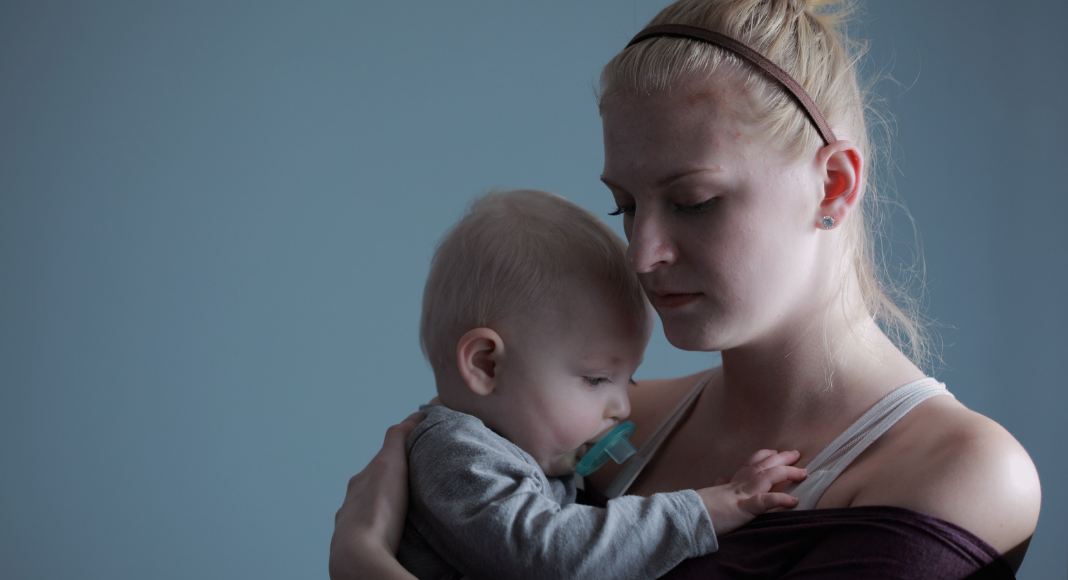“Is sobbing at a Subby’s normal?” I asked my doctor at my postpartum follow-up, as I filled out a questionnaire on postpartum depression.
I recalled how my first date night out to the movies was an unexpected rollercoaster. A feeling of overwhelming relief of having a night out quickly followed by a guilty shock; drowning the happy feeling out as my hormones bellowed “What kind of mother is happy to be away from her baby?”
I knew my hormones were going to be ‘raging’ and they would take time to level back out. However, I didn’t expect them to become a villain in my motherhood journey; one I imagined vaguely resembling the villain in Ferngully with a splash of Harry Potter dementors mixed in.
Feeling this way, I decided to learn more about postpartum depression.

What exactly is postpartum depression? Symptoms can include insomnia, loss of appetite, intense irritability, and difficulty bonding with your baby. When undiagnosed and untreated, the condition may last months or longer. There are more than 3 million US cases per year.
I also discovered postpartum anxiety, which has similar symptoms and treatments.
As a standard practice, my OB Office administers a PPD questionnaire at postpartum follow-up appointments. I talked with my doctor about my hormones and feeling completely overwhelmed related to recovering from delivery. When my hormones were still adjusting back to normal, I truly did not feel like myself; thankfully they leveled out about three months postpartum.
My husband and I took classes on everything recommended for baby care and preparing for our baby’s arrival. Surprisingly, there was not a class focused intrinsically on postpartum life or adjusting to motherhood. I really would have benefited from a “How To” on self-care in the midst of motherhood or a “Life Hacks” motherhood edition.
What I found to be the most helpful was redefining in my mind what it meant to be a #strongmom. I gave myself permission to be vulnerable and embrace my feelings (primarily giving myself permission to cry). I had to coach myself on how crying is a good release and it is okay. It is a good, natural way to reduce emotional stress and promote a healthy mind and body.
As a new mom, I also realized I wasn’t practicing good self-care; I discovered quality baby care often equated to poor self-care. I had to find ways to prioritize self-care. Which meant adding self-care items to my Google Calendar (ex: showering, eating healthy, phone time with friends), items I didn’t schedule prior to motherhood.
I also took time to identify the origins of the stress in my day. When I first became a mom, I was job searching, breastfeeding, interviewing, house hunting, and moving. One of those alone can be too much to tackle. I had to devote time to reflecting on my day to dissect which item was the source of the stress influencing my mood to effectively address the cause. Before I started doing this exercise, I associated every notion of stress with being a mom – a bad mom – and it made me feel like a failure. Being able to see the other areas of my life I was managing and nurturing in the midst of motherhood made everything more manageable.
Daily Strategies & Reflection Items That Helped:
- Identify the role of hormones in my day; how did they impact my day?
- Identify coping mechanisms to manage my day and keep it balanced. Ex: go on an adventure, call a friend, go for a walk, vacation in the produce aisle, take photos – find the happy!
- Embrace feelings. Identifying the rational feelings, appropriately acknowledging my feelings, and discarding the irrational and hormonal feelings.
- Identify the origins of stress. Make a list of stress-inducing items to manage anxiety; identify coping mechanisms and action items to eradicate stress.
What has helped you manage postpartum depression and postpartum anxiety?












